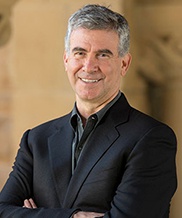Creating AI Conversations Panel Series: Children and AI
Creating AI Conversations
Winter Quarter Panel Series
4:15pm-6:00pm CERAS 101, Stanford
Free & Open to the Public As Space Permits
Conversational Artificial Intelligence (AI) personalities are playing an increasing role in our everyday lives. In addition to our personal assistants, industries such as education, healthcare, hospitality, transportation, and law are using AI to varying degrees. As conversational AI becomes integrated in our society, we need to give serious thought to mindfully creating these personalities and conversations. These are personalities that are not only going to be keeping us company and helping to make our daily lives easier, but coaching us into changing our behavior, helping us navigate the world, and teaching our children.
Creating AI Conversations is a series of panel discussions that will delve into the thinking, research, and process around crafting the personalities, conversations, and interactions of AI entities with people. Five panel sessions will take place in January and February from 4:15pm-6:00pm pm in CERAS 101.
Please join us on Wednesday Jan 17th, 24th, and 31st as well as Feb 7th, and 14th, as we bring together a diverse set of Thought Leaders from the Stanford community and industry to discuss:
AI and Behavior Change
Personality and Voice in AI
Children and AI
Race, Gender, and Ethnicity and AI
Voice User Interface Design (VUI) and nonverbal communication in AI
Never Miss An Event; Join Our Email Community
Presenters

Daniel Schwartz is dean of Stanford Graduate School of Education and an expert in human learning and educational technology. Schwartz oversees a laboratory whose computer-focused developments in science and math instruction permit original research into fundamental questions of learning. He has taught math in rural Kenya, English in south-central Los Angeles, and multiple subjects in Kaltag, Alaska. This diversity of experience informs his work. Among many honors, Schwartz was named Graduate School of Education Teacher of the Year for 2015. His latest book, The ABCs of How We Learn: 26 Scientifically Proven Approaches, How They Work and When to Use Them, distills learning theories into practical solutions for use at home or in the classroom. NPR noted the book among the "best reads" for 2016.

Sandy Spangler has spent the last two decades creating playful experiences for human beings on platforms ranging from computers, videogame consoles, and mobile devices to educational tablets and toys. Her video production degree and animation skills have served her well in telling stories and developing characters in games, and she has always been fascinated by the countless ways and reasons people play. Most recently she has been working at San Francisco robotics startup Anki designing gameplay and interactions for Cozmo, a small but highly sophisticated robot with a larger-than-life personality.

In a previous life, Scott Ganz was a screenwriter, who transitioned from writing appallingly cruel jokes about celebrities on Comedy Central to the kids' space, where he worked for the Muppets and PBS Kids. It was while working on WordGirl for PBS kids that Scott won an Emmy for outstanding writing in animation. Scott then transitioned to the tech space, where he worked for nearly 5 years at ToyTalk (now called Pullstring). While there, Scott wrote, designed, and creative-directed conversational experiences for kids and adults, including original projects (The Winston Show, SpeakaZoo) as well as work for major IPs (Thomas & Friends, SpongeBob Squarepants, Doctor Who, Call of Duty). Scott is currently working with Xandra, a conversation design studio, where he is continuing his work with Nickelodeon.

Li Jiang is the director of AI, Robotics and Future Education Initiative at Stanford. Dr. Jiang has been doing research and investment in the field of Robotics and AI for more than 10 years. His current research focuses on how AI and Robotic technology will impact our education system and how we need to adjust our education system to accommodate the coming era of robotics and AI. He was the top award,“Best of Innovations Award” winner for 2014 Consumer Electronics Show (CES) Innovation Awards. He is a board member of International Robotic Expert Committee for China.

Kris Dos Santos is the co-founder and the Lead Hardware Engineer for Catalia Health, responsible for the design, manufacturing, and production of the Mabu Wellness Coach platform. Kris received his B.S. in Mechanical Engineering at MIT, and researched with Personal Robots Group at the MIT Media Lab, where he also received his M.S. He has previously worked on projects with Boston Children’s Hospital, Cooper Perkins Inc., and Google Robotics. His interest is in the various applications of robotics, particularly in the home and for use in education and healthcare. Kris wants to help bring robots into peoples' lives as useful products for the future.

Elizabeth Arredondo is a mediaX Visiting Scholar and moderator of the panel series. Her research focuses on creating conversations with automated agents; she currently designs the personality, backstory, and the conversations for a robotic wellness coach named Mabu at Catalia Health. After earning her MFA in Writing for Screen and TV from USC's School for Cinematic Arts in 2005, Elizabeth received a feature film writing fellowship and participated in NBC's "Writers on the Verge" program. Elizabeth went on to work as a staff writer on the primetime CBS drama COLD CASE and develop original pilots.